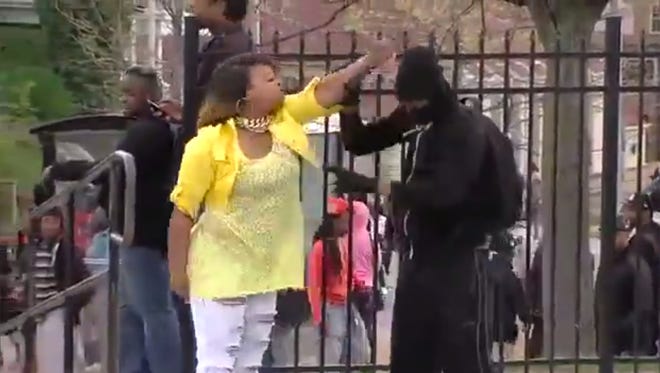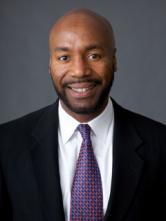
There are many black women praying for “a good black man,” but they are often the same ones who kill that very goodness in their own sons. They are the ones causing irreversible damage to his psyche long before the schools and society nail his coffin shut.
Unable to watch the recent horrifying moment of a mother beating her 7-year-old son and threatening to ‘break his face’ for disrespecting his teacher, I was reminded of how I killed my own son, long before he went missing 5 years ago.
This is not discipline! This is murdering the soul of your child!
Growing up, my son loved me more than life, but I made him fear me worse than death. I screamed in his face, I beat him for making messes, I threatened him for disturbing me, and I dared him to cry when he was hurting. I broke promises to him, I denied him hugs and loving arms. Above all, I broke the trust of my divine purpose as a mother.
A past that’s haunted me 40 years resurfaced during the national coverage of a mother beating her son in Baltimore Maryland, several years ago. Hailed, ‘Mother of the Year’ by media encouraging society to believe our sons should be beaten into submission because they must be no good.

I was outraged by her vicious behavior as many mothers were; some because they would never humiliate their sons in public in such a degrading way and others because, like me, have long since lived to regret having violated their precious gifts from God in such a way.
Our sons suffer a slow, cruel, yet invisible death when their mother is the first one to call him bad, the first to yell no, and stop at him. His spirit is broken when she is the one who tells him he can’t do this, shouldn’t do that, and better not think of doing anything other than what ‘Massa’ allows.
I have heard young mothers say, “he just wants me to hold him.” But knowing so, ignores him. Or, “he’s just acting like a baby” when in fact he is. I have watched as she screams at him, calls him derogatory names, and slaps him around in public. At home, she shuts him up when he cries and ignores his need to be held and allows others to punch him around to make him tough. She will scorn him for exploring how things work and applaud him for acting like a clown.
When he gets older, she is the first one to take sides against him when he is accused of doing wrong and takes pride in embarrassing and humiliating him to impress his accusers. There is no wonder he turns to the streets with no regard for life searching for that familiar pain of death until it finds him.
Social networks are riddled with posts of black women crying about the “no good” black men who ruined their lives and broke their hearts but how many of those women ever stopped to think that we as black mothers are the ones who raise these men.
Truth is, there is no such thing as a no-good black man — broken yes, but no one comes into this life ‘no good’ and no one aspires to be ‘no good.’ No-good things would have to shape his world, and the womb is where his world begins. If he receives protection and strong enough love from his mother — even without his father’s presence, nothing in life could break him or make him a no-good man.
As with Monique‘s viral declarations of loving the black man, many black women feel the same but, nothing substantial can ever be said to heal the black man’s wounds until we first offer the sincere apology for the wrong we have done as mothers to our sons who grow into these men. Then, as a collective, we must change our behaviors towards them.
While I can’t possibly recall all the despicable things I did to my son (and his little brother) there are a few things that haunt me constantly; my intolerable attitude towards his need for play, my neglect to hug him, teach him and help him learn on his own with compassionate tolerance and for beating him for making mistakes.
Those things might have been reconcilable in his development had they been occasional incidences, but they were extreme patterns that slowly destroyed his ability to develop trust, curiosity, and self-esteem. To guise my horrendous attitude as a mother, I dressed him up in fine clothes, taught him to address me as ma’am, and speak only when spoken to, so I could show him off in public and get praised for ‘doing a wonderful job’ with him.
Then came the irreconcilable damages. His father went to prison before he was born and remained there for almost 10 years. So, I went on a quest to find another ‘good black man’ — searching the nightclubs where I worked and played. Month after month, I was bringing different men home introducing them to my son.
My son stood by witnessing me sink into drug addiction with man after man and a host of unsavory friends coming and going while I shuffled his half-nourished mind and body into his room and carried on in ways he should never have seen nor heard.
I began to wake up after one of my screaming rages frightened my son so bad (at 8-years old) he wet his pants. I began to clean up my act and would later find out about horrible things that happened to him by some of these dark characters going in and out of my house while I was in and out of consciousness.
Eventually, I found a man to marry, having three more children. Turns out, my husband was tormented as a child too. He never trusted me because of the things he saw his mother do, and to a man, no woman on this planet is better than his mother!
So, if a man’s vicious mother was also a liar, cheater, or nasty man-eater, in his mind, no matter how good a woman may be, he subconsciously believes somewhere inside her exists the same terrible characteristics of his mother.
In the end, I had to escape from my husband, discover me, and ultimately become a different kind of mom raising my children with a different kind of life.
My son will be 45 next year and I have yet to apologize to him for the wrong I did while raising him. Though he went on to build a phenomenal conglomerate of businesses with other tormented men, I knew he was haunted by the past I took him through. But instead of looking him in the eyes and saying ‘I am sorry, I would lower my gaze in silent shame in those rare moments when he would come around; so eventually, he stopped coming.
I tell this story, not knowing whether I’ll ever see him alive again, for other mothers making the same mistakes, andto offer a sincere apology to all the black men who suffer at the hands of their cruel and unconscious mothers.
There is no redemption for me regardless of the changes I have made because I cannot go back and undo what I have done. But if this is heard in the way my heart is pouring it out, we as black mothers can change how the world treats our sons from this day on, by changing how we treat them, raise them, respect them, and empower them with the everlasting effects of his first LOVE.
Right now, throughout the world, the black man is targeted for defeat because even at his worse he is better than most — when he sets his mind to it. It is our job as mothers to nourish their hearts, protect their minds, and flood them with love to brace them for the tribulations society has stored up for them.
That is loving the black man — and we cannot declare our love for him while beating down his sons!
Obviously, this is about our sons which by no means tries to disregard our precious daughters. However, this should serve as enlightenment to what needs to be done for them as well because if our sons are the target, our daughters are the bait.
 In March , Arizona Department of Corrections banned Paul Butler’s book, “
In March , Arizona Department of Corrections banned Paul Butler’s book, “





 “I could see him getting more heated, he was upset with me about some of the questions — that’s OK — he was a little irritated, and that’s OK,” she said of what was going through her mind during the interview. “So, when I see Robert [Kelly] getting really upset, and he stands out of his seat, my initial reaction was, ‘Oh God, please don’t leave, please don’t leave.'”
“I could see him getting more heated, he was upset with me about some of the questions — that’s OK — he was a little irritated, and that’s OK,” she said of what was going through her mind during the interview. “So, when I see Robert [Kelly] getting really upset, and he stands out of his seat, my initial reaction was, ‘Oh God, please don’t leave, please don’t leave.'”